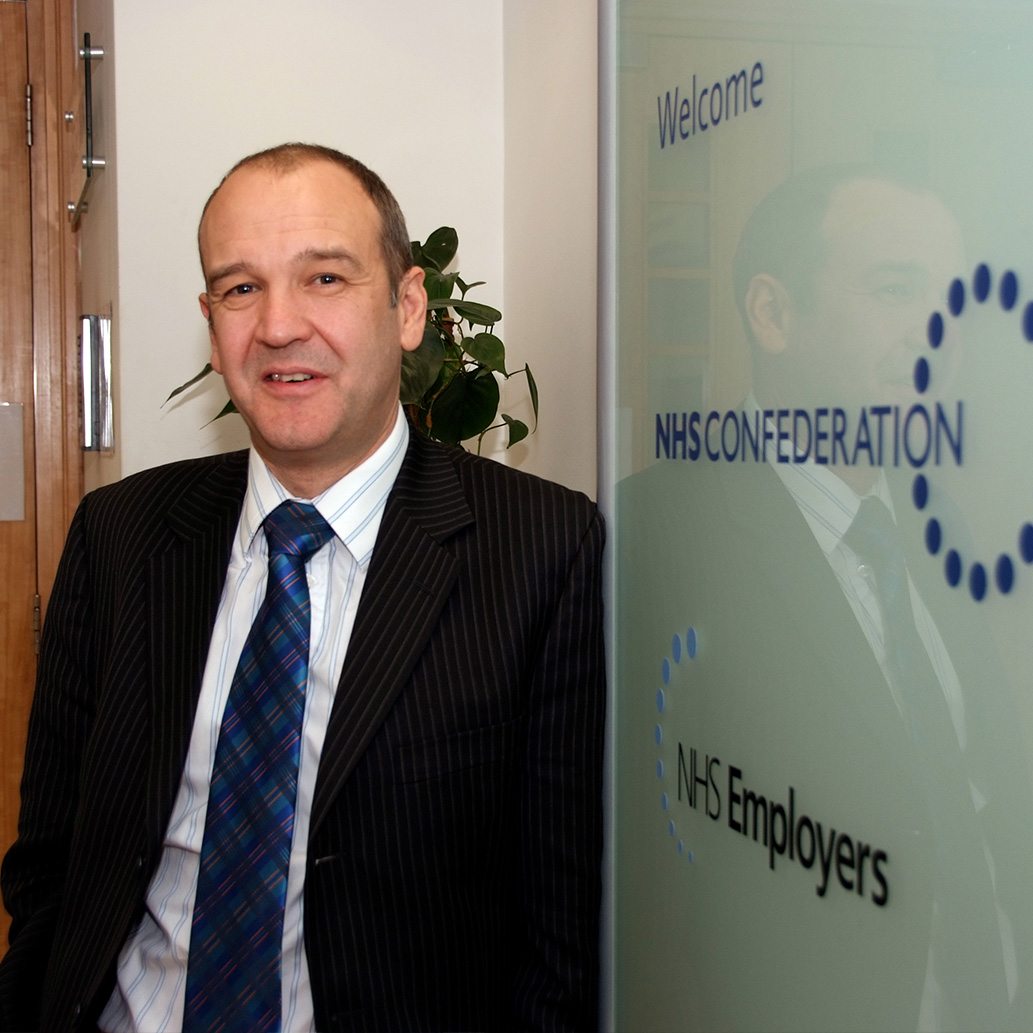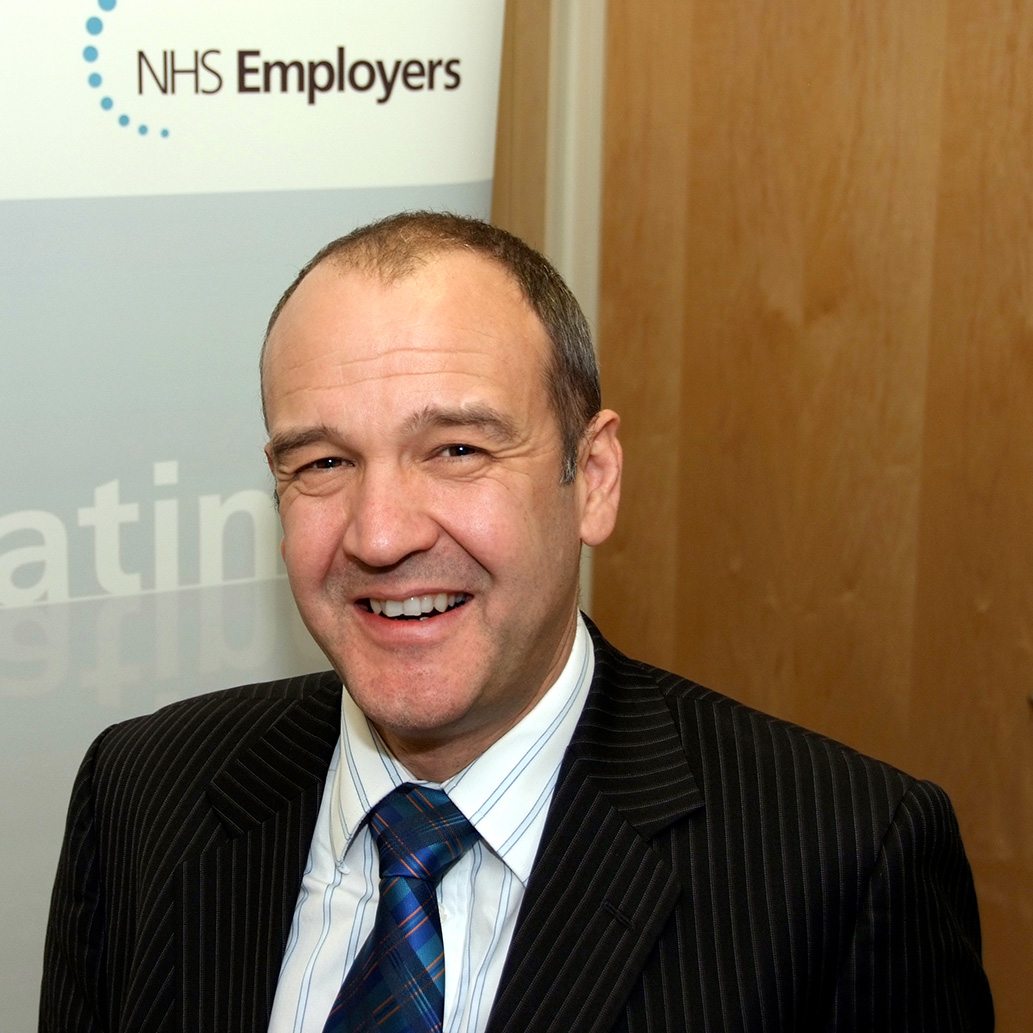So Dean, why HR?
I started working for a local authority, in a benefits office, in the mid to late 1980s. There was a lot of public sector strife at that particular time with a lot of days of industrial action and events such as the rate capping strikes, a number of councils were setting rates which were above the level the government wanted them to be. When I worked in a benefits office I came into contact with what is now HR. It was fascinating, with negotiations and the HR function trying to plot a way through organisational policies and politics. I got a chance to take up a secondment in the personnel department at Sheffield council and gained my CIPD qualifications, really getting immersed into HR. Since then, it’s been a series of moves in the public sector from local authority into a community trust, and from there into a district general hospital. I also worked in an ambulance service and took on a senior civil servant and HR director role at a large multi-site hospital before moving to a strategic health authority as a director of workforce education. It was that role that developed my understanding and appreciation of the education and training sides of what we do with our workforce. And, in the last few weeks, I’ve come here to take on what is a national role in the NHS Employers organisation, based in both London and Leeds. The size and scale is immense! The NHS in England ‘excluding primary care’ employs around 1.2 million people with a pay bill of around £43 billion.

Making a career of managing HR issues in the health service is not for the faint-hearted. You must have been totally committed.
In the early days of my career, it was hugely challenging in the public sector in terms of employment relations. Personnel department tried to work their way through issues in a way that was legitimate to all parties. And I can remember, back then, people asked ‘which side HR was on’ – staff or management? HR was seen as a ‘neutral’ arbiter. This was before the level of sophistication in HR today, it was right on the cusp of realising HR must be primarily about managing the resources of an organisation and developing people for the benefit of the organisation. At this time, HR was taking on the mantle of a welfare officer, wading into industrial relations and moved over time to become key business discipline. HR has changed and developed in so many ways since then.

In dispute situations, was it actually clear what the HR function was expected to deliver or achieve?
At the time, it was clear that skill in negotiations was key, but I think with hindsight that the focus was on ‘getting the deal’ and I don’t think this premise leads to settlement and long-term resolutions. In terms of influence, these are relationships that have to endure for a period of time in order to gain solutions which are sustainable rather than a series of temporary truces. Now I think trade union membership, and action, is considerably more sophisticated and more interested in solutions. The HR function has helped here, particularly in the NHS, moving negotiation towards understanding – towards the importance of seeking sustainable solutions and working in partnership.

HR's position must be very difficult in such situations, is it an advocate of the workforce, the business or a fence sitter?
HR is a business discipline, it has the ability to manoeuvre around and plot a way through a series of issues. Of course there is a lot frustration – two steps forward one step back – but you apply your skills and knowledge, and you must have faith and confidence in the fact that people genuinely want to get on and do a good job and want solutions. It’s inevitably a test of resilience, nerve and understanding the organisational imperatives.
The frustration in some cases was that solutions were short-term while long-term, sustainable solutions were that much more difficult to achieve. So I think putting an emphasis on getting a deal for a deal’s sake is not ideal. Trying for long-term and sustainable solutions is much more about engaging people in the workforce, rather than coming to an expedient agreement, The marked difference for me, between my early years in local authority and, more latterly, in the health service is that the health trade unions had a passionate interest in levels of service of care and quality of care. It came across as being a special relationship between health trade unions and the health service managers, in comparison with my early experiences. Primarily, it was a recognition of what disputes and strikes meant on both sides and the impact they have on standards of care. So this is a very different environment, in terms of working with professional understanding within the unions. As managers we recognise the importance of that relationship.
When you first went into the health service was it clear what the key challenges were for HR?
Clearly, for me, the key objectives were the development of partnerships and engagement around service delivery issues, and it was clear that getting that wrong meant you could spend an enormous amount of time arguing and debating about who should have known or done what and when. From a management perspective, if you’re having this sort of debate with trade unions and staff, you’re not dealing with any of the substance of issues, direction or organisational change. You get distracted from using the resources of your function, rather than helping the organisation and supporting managers. Also it was very much about rebuilding trust in relationships and it’s fundamental to understand partnership and recognise the engagement links between the organisation, managers, trade unions and employees. They’re not all distinct or separate constituencies – they overlap all over the place, all of the time.
I worked very hard to build trust and to understand synergies around a culture of understanding on all sides. This meant that rather than a knee-jerk reaction to flashpoints, the debate was about real issues, what needed to be done and how it could be achieved. The benefits were immediately obvious. You talk about it, agree it, put the pieces in place to achieve it, organise it, and get a better more sustainable outcome for the organisation. So a clear, simple plan, good communication, preparation and above all engagement are of course really important. And from a personal perspective, it’s about belief, being true to yourself and others and giving something of yourself and what your values are. Then people know where you are coming from when you’re having those discussions.
The most important thing is the quality of service. Do patient surveys give anything other than negative feedback, when they are asked?
It’s true that people are often more motivated to give an opinion when they have had a negative experience – and understandably so. This sort of immediate feedback and information is important in improving levels of service. Surveys provide people with the opportunity to give relevant viewpoints and personal experiences of the health service. And, despite the perception, it is nearly always rated very highly in terms of satisfaction rates. Likewise on our staff surveys. Many other organisations would give their eye-teeth for such staff satisfaction rates, but we are never complacent. And while the negative image continues, engagement in the health service continues to improve, because we respond to the feedback and try to work hard with staff and unions to put things right.
The non-clinical management in the NHS come in for a good deal of stick in the NHS, how do you respond to this negativity?
Managers are often portrayed as uncaring and unnecessary. This doesn’t match my experience at all. Many managers in the health service have been working in the public sector all their lives. They often come from clinical backgrounds and have developed their careers into management because they believe they could make a great contribution. They’re also deeply passionate about making sure we provide quality care and it’s always about managing resources in difficult and challenging conditions, where the consequences of getting it wrong are enormous. But it is their underpinning values of respect, dignity and compassion that drive the agenda to cope and to improve.
And there must be a constant pressure to improve, update and change?
There is always a desire to improve what we do, unquestionably, and I’m proud of the changes that have taken place in the health service and my small part in them. As managers we don’t credit ourselves nearly enough. Organisational change is a massive challenge wherever you are. But as a 365 day, 24-hour service providing essential services, we can never shut, so the challenge is tenfold. A supermarket bought out by another can close up shop, rebrand and refurbish over a weekend, but you don’t get the opportunity to do that in essential service – you can’t be closed for training. You’re introducing change while it’s up and running and trying to ensure there isn’t a deterioration of services during that time. It’s a very challenging environment for managers and I’d like to think it’s appreciated. The service is driven by different types of change including change in legislation. There’s also new IT and technology being introduced, new kit and changes in training standards. Over five billion pounds is spent educating the workforce so it is right we try and make the best use of it.
And yes, if things go wrong in the health service it can lead to tragic consequences. That creates a pressure that few other organisations, public or private, could even contemplate. These tragedies impact on ALL the staff in an organisation. So we take service improvement and change very seriously.
How do you manage the negativity caused to staff from such press coverage?
The size, scope and complexity of such an organisation, and with issues that trail out in the press, means that a key role for HR is the maintenance of pride, worth and engagement. Consider that the NHS treats something like a million people every 36 hours, for countless different issues. That would not happen without maximised engagement. We have to have good people management practices, that’s a given, but get better patient outcomes when we have excellent staff engagement.
Despite the necessity for long-term, broad workforce planning, there must be constant crisis in HR that needs immediate attention, you must need to know what is happening at the sharp end.
Continuously, inevitably, it’s a bit of both really. There’s a lot that happens on the ground, in A&E, the wards and special units. Individual hospitals and health service providers will understand where there are threats and challenges, but also opportunities. And, where they’re over-stretched and where they can do more. They have to plan for the future, whilst dealing with the here and now. There are also many issues, for example the changing standards and practices in nursing and other clinical professions which need to come into effect – particularly training and educating people to understand the changes. We are continuously adjusting so that we can be efficient and effective.
Is the graduate stream of people coming into the NHS healthy and flowing?
The NHS is funded to commission from universities, with a number of trainee places. The challenge is that you’re making decisions sometimes 15 years away from when they will impact. When we’re looking at the number of people going to medical school, it’ll be 15 or so years before those students become consultants. If we start recruiting nurses now, it’s three or four years before they come out of university. Then there are further postgraduate studies focused on specific fields and expertise
The NHS is responsible for planning from the early stages and it’s a complex and enormous task. You can never quite get the resource needs right because of all the variables, but we have got increasingly good at it. We’re constantly defining the architecture, getting a clearer picture of how the health system will change and what support will be required from HR.
Is there the perception that the NHS is a political football?
It’s not a term I would use. My sense is politicians generally hold the NHS in high regard, and there is always a genuine desire to make it better. I don’t think it is a football in the sense of being knocked about, it’s more of a desire to provide increasingly better services for patients that drive changes in policy and practice.
And for all the negative press, people genuinely seem to be proud of what the NHS represents and provides. I think most people that work in the health service would say it is great to be working in a well-loved, cherished institution but it’s not enough, what you want to do is to make a contribution to a well managed institution that delivers great care for patients. So recognising there are lots of things that impact on this huge workforce, your aim, as a director, is to look at how we can manage that and drive it forward so we deliver the best care across the service. That’s the challenge in a nutshell.
Communicating a uniformed message must be hugely complicated, given the many and varied services throughout the UK?
As the NHS Employers Organisation, we obviously have a lot of networks to enable us to understand the particular challenges, anxieties and opportunities and we do have regular regional and sub-regional forums. We also have a lot of data available from a common pay system such as, costs and pay ratesetc. This helps us look for consequences of decisions in terms of engaging with trade unions nationally and regionally with employers, and in terms of understanding employee relations.
We produce evidence for things like pay review bodies, various reviews of particular tasks which take place, and channels for offering an employer voice. In terms of making the employer case there are a variety of different working groups which exist around particular challenges and we can pull the appropriate people together around particular issues.
We also have the annual NHS Staff Survey – I believe it is the largest staff survey in the world. It gets broken down by discipline and departments so we can look and see what people think in general terms about the leadership in their organisation and at a macro level. The survey looks at a number of different areas such as the number of incidents that staff members witness, access to training and development, job satisfaction or violence within the organisation. It is important to drill down so we can get a sense of what’s going on. It’s also about empowering organisations, which is important for HR, with data that reveals and develops the insights into what needs to change.
From an HR perspective, what are the biggest challenges you are facing in the future?
We have just had the largest Health & Social Care Bill, in terms of pace and scale, and the NHS now faces the greatest number of challenges since 1948. So we must continue to promote that the HR community is up for the challenge in terms of making contributions to those changes. Compared to the rest of the public sector the NHS has a pretty good financial settlement, but it is still significantly less than we used to have. As a result there is the opportunity in there in terms of using our collective wisdom to innovate and work in partnership both with trade unions and organisations to work on how NHS organisations support each other in a way that’s going to minimise the negative impact on patient care.
The idea is to take that mature approach. We support each other in terms of making sure we’re learning from each other, not only in terms of sharing best knowledge but in terms of avoiding duplication.
The NHS Staff Survey shows improved results over the last half a dozen years or so,. There’s been a gradual increase in satisfaction measures that we have within the health service and generally speaking recruitment is good. My other point about such information is that it’s at a national level and it’s not always helpful to just see the national picture. What happens locally is really important. And as the NHS Employers organisation, one of our roles is not only looking at conditions but at how we promote the health service as a great place to work. We need to train and educate staff to the right standards, but we also recognise that well managed people will deliver better patient outcomes, so staff engagement is crucial to well managed service. The focus is also increasingly moving towards the 24-hour services, working and running services at weekends, using resources effectively and doing so in a way that brings efficiencies with them, including ways we can reduce the pay bill.
And then there’s government targets and reduced funding, do you think there will be an increase in outsourcing?
There’s a government target to reduce the number of managers and changes will take out some intermediate organisations which have managers in them. It has been announced that there will be a reduction of management capacity within the NHS and particular parts of the architecture will come out, but the financial challenge is greater than just reducing management.
So by 2015 the NHS will have 20 billion pounds of efficiencies to find. This is a huge challenge and it’s going to be much more sophisticated than just work around planning the numbers of managers. So part of it is looking across the whole workforce and how we can contain that cost. Shared services will become more prevalent than they have been in the public sector as a whole and, in the NHS, there’s an opportunity to develop that. But then it’s also about how we bring the HR wisdom within individual organisations into reshaping the workforce, reshaping them around the skills we have and the way we engage and utilise them, around working patterns.
The thing is that, in terms of trying to reduce the pay bill, an organisation will look at their neighbouring organisations as well. therefore, it’s certainly about some outsourcing and about looking areas such as ways to reduce costs, the skill mix and shared services. It’s all the part of the package on how we will become more efficient at services. It’s a challenge for HR but its the classic area in which HR can make a contribution.
And what are your personal objectives?
I’ve been at the NHS Employers Organisation for a few weeks now and the personal desire about wanting to lead an effective and well regarded organisation is high on my agenda. The architecture of the NHS is changing and this does give the Employers Organisation a collective voice in changes, helping to make the NHS a good place to work is a core purpose for us rising to the challenge to give employers that collective voice is something we are trying to do.
I think the HR community won the argument about the value of good HR. People don’t debate about the value of HR anymore. The evidence base has changed the way organisations see HR and its changed HR from a prime focus on the importance of ensuring managers are good people managers – still essential of course – to a focus on ensuring that we have the right capacity and capability to create sustainable organisations. So from that point of view I’m really clear about the value of HR. I feel passionate about wanting to do that and to watch it grow and develop as a discipline that is indispensable in organisations.
It’s about being true to your values. If you enjoy your work and lead people effectively employees will see that you’re doing things in line with your values. What you do and how you act resonates with what you’re saying if you’re authentic. I hope to remain passionate, professional and proud of what we achieve in my role at the NHS Employers organisation.












